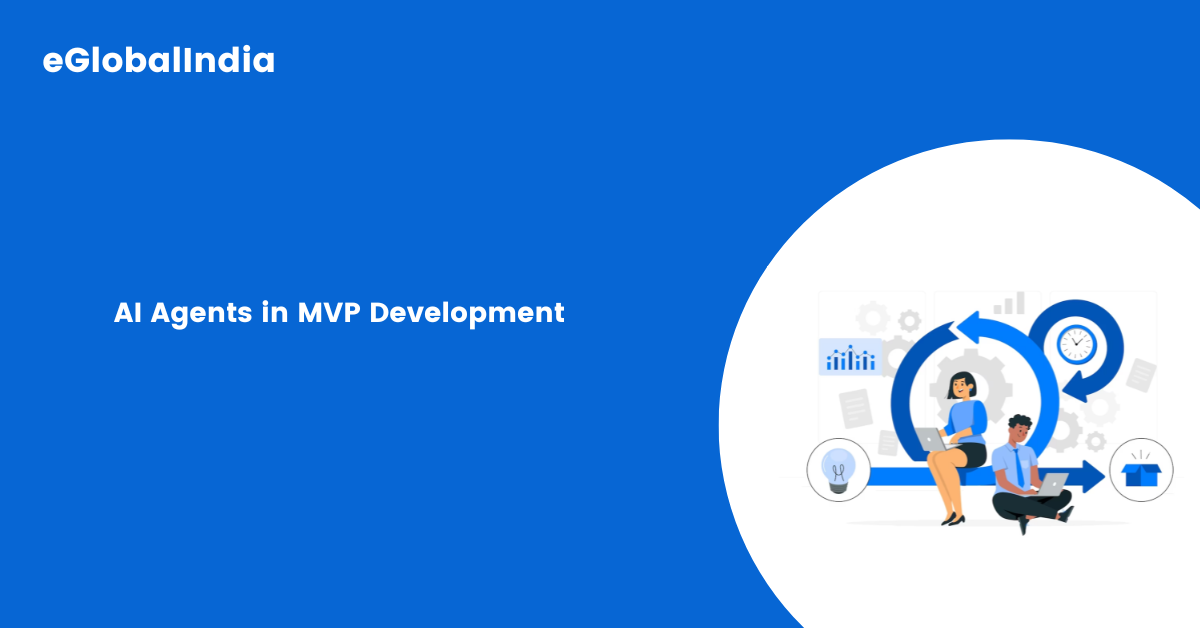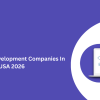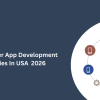

Introduction
Launching a new product quickly and efficiently is crucial for startups and businesses. One way to do this is through MVP (Minimum Viable Product) development, a strategy that focuses on building a product with the core features necessary to meet early adopters’ needs. By leveraging AI agents in MVP development, companies can significantly enhance the development process, improve efficiency, and better meet market demands.
This article explores how integrating AI agents into MVP development not only streamlines the process but also helps create more intelligent, scalable, and user-centric products. We will dive deep into the benefits, challenges, and practical implementation of AI agents in the context of MVP development.
MVP, or Minimum Viable Product, is a crucial concept in the startup world, especially for businesses that want to test their product ideas without investing too much time or money upfront. In simple terms, an MVP is a stripped-down version of a product that contains only the essential features needed to meet the core needs of early adopters. The objective is to launch it swiftly to gather feedback, verify assumptions, and make well-informed choices for future enhancements.
When starting a new business or launching a new product, it’s tempting to add as many features as possible to make the product seem perfect. However, doing this can lead to overdevelopment, which means spending too much time and money on features that may not even be needed or appreciated by users. By focusing on an MVP, businesses can test their ideas in the real world, saving resources while learning from actual customer feedback.
The key reason for developing an MVP is to reduce risks and uncertainties. Rather than spending months or years building a fully featured product, the MVP allows businesses to get it out into the market sooner and see if people actually want what they’re offering. If the product doesn’t meet user needs, the business can make quick adjustments, pivot, or even abandon the project before it becomes a costly failure.
An MVP isn’t about creating a half-baked or incomplete product. It’s about focusing on core functionalities that are essential for solving the problem the product aims to address. Here are the main characteristics of a well-built MVP:
While MVP development offers several advantages, it does come with challenges. One common issue is deciding which features to include. It can be difficult to determine what is truly essential and what can be left out for the initial release. Another challenge is ensuring the MVP still delivers value despite its minimal design.
Moreover, businesses need to manage the balance between creating a product that’s functional and maintaining a good user experience. An MVP should be simple but still provide enough value to attract and retain users.
AI agents are software entities that perform tasks autonomously using artificial intelligence (AI). These agents can simulate human-like behavior, process large amounts of data, and make decisions based on pre-defined goals or learning from experience.
In the context of software development, AI agents are used to automate processes, analyze data, and make intelligent decisions. They are often employed in machine learning, data analysis, and process optimization. Some of the key features of AI agents include:
Integrating AI agents into the MVP development process can streamline development cycles and reduce the time it takes to bring a product to market. Let’s take a look at how AI agents can enhance different stages of MVP development:
During the initial ideation phase, AI agents can assist by analyzing market trends, customer behavior, and competitor data. They can:
By leveraging AI agents in market research, businesses can quickly gather insights, refine their product concepts, and make data-driven decisions from the start.
Creating a prototype quickly is essential in MVP development. AI agents can support this phase by automating tasks like:
In addition, AI-powered tools can be used to automate aspects of user testing and feedback analysis, making the prototyping phase more effective.
AI agents can significantly speed up the development process by performing tasks such as:
This automation allows developers to focus more on creating innovative features rather than spending time on repetitive coding tasks.
Testing is a critical phase in MVP development to ensure that the product functions as intended. AI agents can play a significant role by:
By automating testing, AI agents reduce the time required to identify issues, enabling businesses to launch their MVP faster.
Once the MVP is ready, AI agents can assist with the deployment process by automating tasks such as:
Integrating AI agents into MVP development offers several compelling benefits for startups and businesses:
1. Speed
AI agents can automate tedious and time-consuming tasks such as coding, testing, and market research, allowing teams to move faster through the development cycle.
2. Cost-Effectiveness
By automating various stages of development, AI agents can help reduce labor costs associated with manual testing, bug fixing, and other routine tasks.
3. Better Decision-Making
AI agents provide data-driven insights that allow businesses to make smarter decisions throughout the development process, from ideation to launch.
4. Improved Accuracy
AI agents can minimize human errors in coding, testing, and deployment, leading to a more robust and reliable MVP.
5. Scalability
By incorporating AI agents early on, businesses can lay the groundwork for future scalability. AI agents can easily handle increased traffic or additional features as the product grows.
While AI agents bring significant advantages, there are some challenges that businesses must address:
1. Initial Setup Cost
Integrating AI agents into the MVP development process may require an initial investment in AI tools and infrastructure.
2. Technical Expertise
Businesses may need specialized knowledge to implement and maintain AI agents, requiring skilled personnel or outsourcing.
3. Data Privacy Concerns
AI agents rely on large amounts of data to make decisions. Ensuring that this data is securely handled and complies with regulations is crucial.
4. Dependence on AI
While AI agents are powerful tools, businesses should ensure they don’t rely too heavily on them. Human oversight is still necessary to ensure the product aligns with user needs and business goals.
Several companies have successfully incorporated AI agents into their MVP development processes. For example:
These examples highlight how AI agents can be tailored to various industries and use cases, making them versatile tools in MVP development.
1. What is an MVP (Minimum Viable Product)?
An MVP (Minimum Viable Product) is a version of a product that includes only the core features necessary to meet the needs of early adopters. The goal of an MVP is to test a product’s assumptions with minimal development effort and gather feedback to guide future iterations. It helps startups and businesses launch products quickly while minimizing risk and cost.
AI agents streamline several stages of MVP development, including market research, coding, testing, and deployment. They can automate routine tasks like bug detection, code generation, and data analysis. By providing real-time insights, AI agents help speed up the development process, reduce human error, and improve decision-making, leading to faster MVP launches.
Yes, AI agents can significantly improve the testing phase by automating test case generation, bug detection, and regression testing. AI-powered tools can continuously monitor the MVP for performance issues and identify areas that need improvement, allowing developers to focus on optimizing key features and ensuring the product is stable before launch.
AI agents can be particularly beneficial for MVPs that require large-scale data analysis, machine learning, or automation, such as products in the Fintech, E-commerce, and Healthcare industries. While AI agents can enhance any MVP, businesses should evaluate the complexity of their product and determine whether integrating AI will offer significant advantages.
Some of the main benefits include:
Challenges include:
AI agents can analyze social media, reviews, and customer feedback to identify trends and consumer sentiment. They can also gather competitor data and help businesses understand market gaps. By processing large amounts of unstructured data, AI agents provide insights that guide product ideation and feature prioritization.
Yes, AI agents can assist in generating MVP prototypes by automating tasks such as wireframing, UI/UX design suggestions, and user testing. AI-driven tools can analyze user behavior and make design recommendations, leading to more intuitive and user-friendly prototypes.
AI agents improve code quality by automating code generation based on business requirements and reducing human errors. They can also detect bugs and suggest fixes, ensuring that the product functions as expected. By leveraging AI, developers can focus on complex features while AI handles repetitive and error-prone coding tasks.
The future of AI agents in MVP development is promising. As AI technology continues to evolve, AI agents will become more sophisticated in tasks such as predicting user behavior, automating complex processes, and optimizing product features. Businesses that integrate AI agents into their MVP development processes will be better equipped to innovate and scale quickly.
AI agents are transforming MVP development by automating processes, speeding up development cycles, and providing valuable insights. By incorporating AI agents into the MVP process, businesses can reduce time to market, lower costs, and deliver more intelligent and scalable products.
As the AI landscape continues to evolve, the potential for integrating AI agents into MVP development will only increase. Startups and businesses that adopt AI-driven MVP development today will be well-positioned to stay ahead of the curve and create products that better serve their customers’ needs.
AI agents for your MVP. Contact us now!

Feb 16, 2026

Feb 14, 2026

Feb 13, 2026

© 2017 All rights reserved.